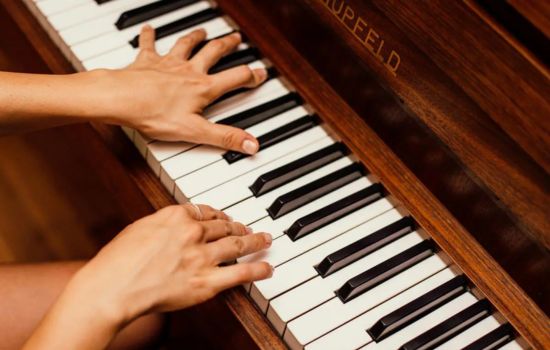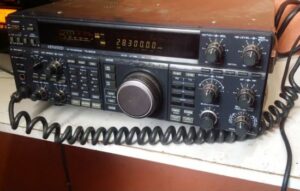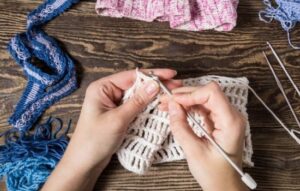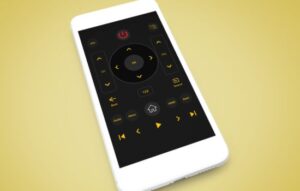The last time I tried to learn piano was fifteen years ago. I found a teacher who charged a fortune per hour. He would cancel lessons without warning.
It made me feel incompetent every time I missed a grade. After three painful months, I dropped out, certain it simply wasn't for me.
I filed that failure away in a mental drawer along with other "impossible" dreams. But life has funny ways of giving you second chances.
Two years ago, an ad on my phone showed me something that seemed too good to be true: learning piano from home, at my own pace, without judgment, without inflexible schedules.
I decided to give that forgotten dream one more chance. Today I'm playing songs I never imagined I'd be able to perform.
And everything changed thanks to technology that finally understood how to teach music in a human way.
Simply Piano: Learn Piano Fast
★ 4.6Information on size, installation and warranty may vary as updates are made in official stores.
See also
- Who Said Learning Mechanics Had to Be Boring?
- Check your vision easily
- The Magic of Push-to-Talk
- Maximize Your Energy, Maximize Your Day
- The Journey to Your Animal Soul
The hidden psychology behind successful musical learning
Learning the piano isn't just a matter of fingers and keys. It's a complex mental game.
The invisible enemy: destructive self-criticism
Most beginners sabotage themselves. They hit a wrong note and their brain screams, "I'm no good at this."
That negative self-talk kills more progress than any technical difficulty.
Simply Piano congratulates you on every small achievement. It sounds silly until you realize how much you need that positive reinforcement.
Yousician turns mistakes into opportunities to level up. Failure feels like a natural part of the game, not a personal failure.
Skoove shows you your progress in visual graphs. Seeing measurable improvement combats the feeling of "I'm not making progress."
The power of flow and how apps facilitate it
The state of flow is that feeling of being completely absorbed in an activity. Time disappears. Self-awareness dissolves.
It is the holy grail of effective learning.
To achieve flow you need perfect balance: not too easy (you get bored) nor too difficult (you get frustrated).
The adaptive algorithms in these apps constantly adjust the difficulty. They keep you in that optimal zone where the challenge is challenging yet achievable.
The comparison trap and how to avoid it
Social media is full of child prodigies playing Chopin perfectly. Watching that can be devastating to your motivation.
Here's the truth: Compare yourself only to yourself from a month ago.
Apps help you with this. They save recordings of your past sessions. Hearing the version of yourself eight weeks ago versus today is undeniable evidence of progress.
Different learning styles and which app suits each one
Not everyone learns the same way. Cognitive science identifies several distinct styles.
Visual learners:
You need to see to understand. Scores make sense to you immediately.
Skoove shines here. Its interface displays traditional musical notation alongside the virtual keyboard. You make the visual connection between the symbol and the key naturally.
The demo videos are plentiful. You see exactly which fingers to use, when to lift them, and how to move between chords.
Auditory learners:
You learn best by listening and replicating. Your ears pick up patterns before your eyes.
Yousician has specific ear training exercises built in. You're given a sequence. You must replicate it without visual aids.
This app also lets you slow down the tempo of songs. You can hear each note clearly before trying to play it.
Kinesthetic learners:
You need to touch, physically experience, make tactile mistakes to learn.
Simply Piano launches you straight into playing from the first lesson. Less theory, more immediate action.
Haptic feedback (device vibration) reinforces your correct playing. Your body learns by associating physical sensation with correct execution.
Analytical apprentices:
You want to understand the why behind each concept before practicing it.
Skoove includes detailed theoretical explanations. It doesn't just tell you to "play this." It explains chord construction, harmonic progressions, and historical context.
The Skoove user forums are full of in-depth theoretical discussions. If you're the type who enjoys understanding underlying mechanics, you'll find a community.
The forgotten factor: the importance of physical equipment
The perfect app is useless with a terrible keyboard.
Non-negotiable features on your keyboard:
Touch-sensitive keys. This means that touching softly produces a soft sound, and touching hard produces a loud sound.
Without this, you won't develop dynamic control. Your technique will be permanently limited.
Minimum 61 keys. Ideally, 88, like a real piano. Fewer than 61 severely restricts the repertoire you can play.
Sustain pedal. It's not a luxury. It's essential for any piece beyond the basic beginner level.
Trusted brands without breaking the bank:
Yamaha PSR-E373: great for starters, around $250.
Casio CTK-3500: decent budget option, around $180.
Alesis Recital Pro: 88 keys for less than £$300.
Roland GO:PIANO88: portable and complete, approximately $350.
The layout of your space matters more than you think:
Correct seat height. Your forearms should be parallel to the floor when playing.
Adequate lighting. You need to be able to see the keys without straining your eyes.
Quality headphones. Practice anytime without disturbing anyone. Plus, hearing every nuance of your playing speeds up corrections.
Position the device with the app. It should be visible without awkwardly twisting your neck.
The science behind muscle memory and how to harness it
Your brain and muscles form specific connections by repeating movements.
Why correct repetition is critical:
Every time you play a sequence, you reinforce that neural pattern. If you repeat mistakes, you're training your brain to make them.
Apps stop this immediately. They detect errors and make you repeat them correctly before continuing.
A human teacher might not notice every small mistake. Technology doesn't miss a single detail.
The myth of practice until perfection:
"Practice makes perfect" is a lie. "Perfect practice makes perfect" is the truth.
Better ten slow and perfect repetitions than fifty fast and sloppy ones.
Yousician and Simply Piano allow you to freely adjust the speed. Use this feature without hesitation.
Smart breaks accelerate learning:
Your brain consolidates information during breaks, not during active practice.
Practice for 25 minutes, rest for 5. This cycle is more effective than marathon sessions.
Apps with free time limits accidentally force this on you. It turns out to be pedagogically superior.

Conclusion
Three apps are waiting on your phone: Skoove, Yousician, Simply Piano.
Each represents a different path to the same beautiful destination: making real music with your own hands.
I won't fool you with empty promises. It will be challenging. There will be days when your fingers won't cooperate. Moments when you'll want to give up.
But there will also be magic.
That first time you play a complete song without mistakes. The pride in your loved ones' eyes when they hear you. The peace of mind that only creating music can give you.
You just need determination and consistency.
The digital piano in your home can remain an expensive piece of decor. Or it can become your daily gateway to genuine artistic expression.
The difference is opening the app today. Playing those first fifteen minutes. Coming back tomorrow for another fifteen.
A year from now, you'll look back. Either you'll be playing music that seems impossible today. Or you'll be in exactly the same place, wondering what would have happened.
Your future self has already made the decision. Now your present self needs to execute it.
The keys are waiting. The technology is ready. Your time is now.
What are you waiting for?









